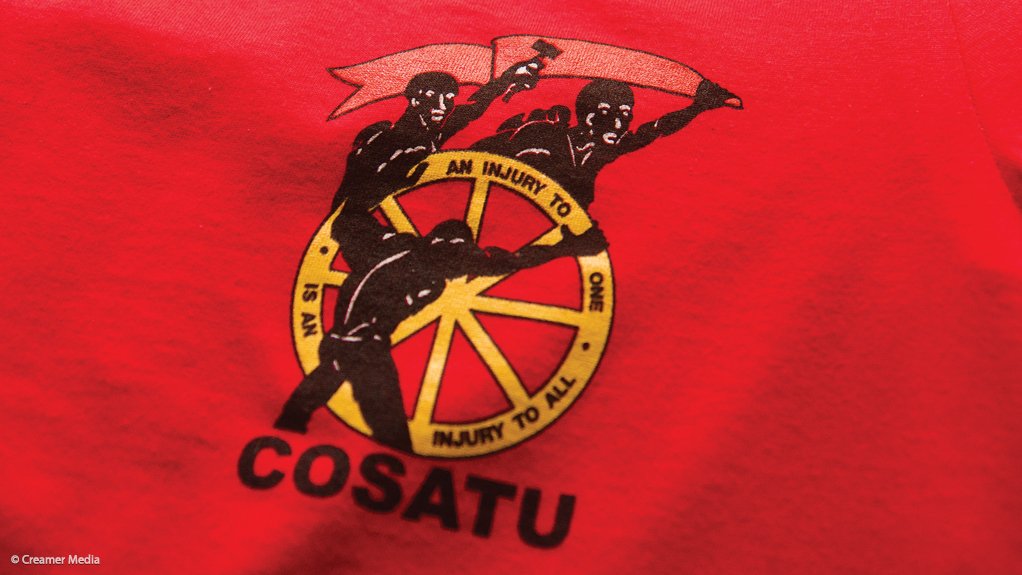/ MEDIA STATEMENT / The content on this page is not written by Polity.org.za, but is supplied by third parties. This content does not constitute news reporting by Polity.org.za.
The Congress of South African Trade Unions (COSATU) welcomes government’s proposal to extend the temporary ban on the export of various scrap metals and related measures to help stem the tide of cable theft.
The Federation welcomes Department of Trade, Industry and Competition’s proposal to extend the temporary ban on the export of various scrap metals and related measures as an effort to stem the tide of cable theft that is crippling Eskom, Transnet, Metro Rail and other critical infrastructure. Whilst supporting the proposed extension, COSATU believes that the envisaged additional 6 months may not be sufficient and that 18 months would provide more space for government to crack down on the criminal syndicates involved and put in place measures to regulate legitimate traders.
Cable theft alongside loadshedding is one of the major threats to the economy and the jobs. Cable theft over the past few years has grown exponentially and become a major source of organised crime. It is estimated that the resulting damage to the economy annually is over R47 billion. In 2021 alone, it cost Transnet R2 billion and more to the mining, manufacturing and agricultural sectors and jobs that depend upon a fully operational railway network. In that same year 742 kilometres of cable were stolen from Eskom’s infrastructure causing repeated loadshedding and more suffocating the economy and threatening badly needed jobs. Cable theft at Metro Rail resulted in 3 commuters dying and 600 injured in Pretoria in 2019. Thousands of workers struggle to arrive at work on time in the cities due to cable theft related delays at Metro Rail.
COSATU has engaged extensively with government on interventions to stem this tide. The Federation believes that the extension of the current temporary ban on various scrap copper and scrap metal exports, the requirement for scrap metal dealers to register with the state and SARS, and the establishment of a metal trading licensing regime is necessary and will help reduce the market for cable theft and regulate legitimate traders and the informal sector. We support the nuanced approach and accommodation provided for in the measures for legitimate and legally compliant traders and the informal sector and the value chains.
The recent progress by law enforcement in tackling these criminal syndicates is welcome, in particular the establishment of the multi-disciplinary task team and the subsequent 3 000 operations and 1 946 arrests in 2022. This includes a significant number of convictions and sentences for cable theft at Transnet. However particular attention is needed for Eskom where similar arrests and convictions have been minimal.
The judiciary needs to apply the full scope of sanctions afforded to it under the Criminal Matters Amendment Act, including sentences for up to 30 years for criminal syndicates’ members involved.
Whilst welcoming the package of interventions and some of the recent successes, they will not be sufficient if we continue to deny the South African Police Service, the National Prosecuting Authority and the courts the resources they desperately need. We cannot afford to see the SAPS head count decline from over 200 000 in 2010 to 172 000 today, nor can we afford to see critical vacancies remain unfilled at the NPA, or to have 2 years’ backlogs in court cases. The investments in SARS in filling key vacancies and in its IT capacity and the dramatic impact this had had on its ability to tackle tax evasion, are clear evidence of the need to invest in public services and the positive effect this has on society and the economy.
Issued by COSATU
EMAIL THIS ARTICLE SAVE THIS ARTICLE ARTICLE ENQUIRY
To subscribe email subscriptions@creamermedia.co.za or click here
To advertise email advertising@creamermedia.co.za or click here











